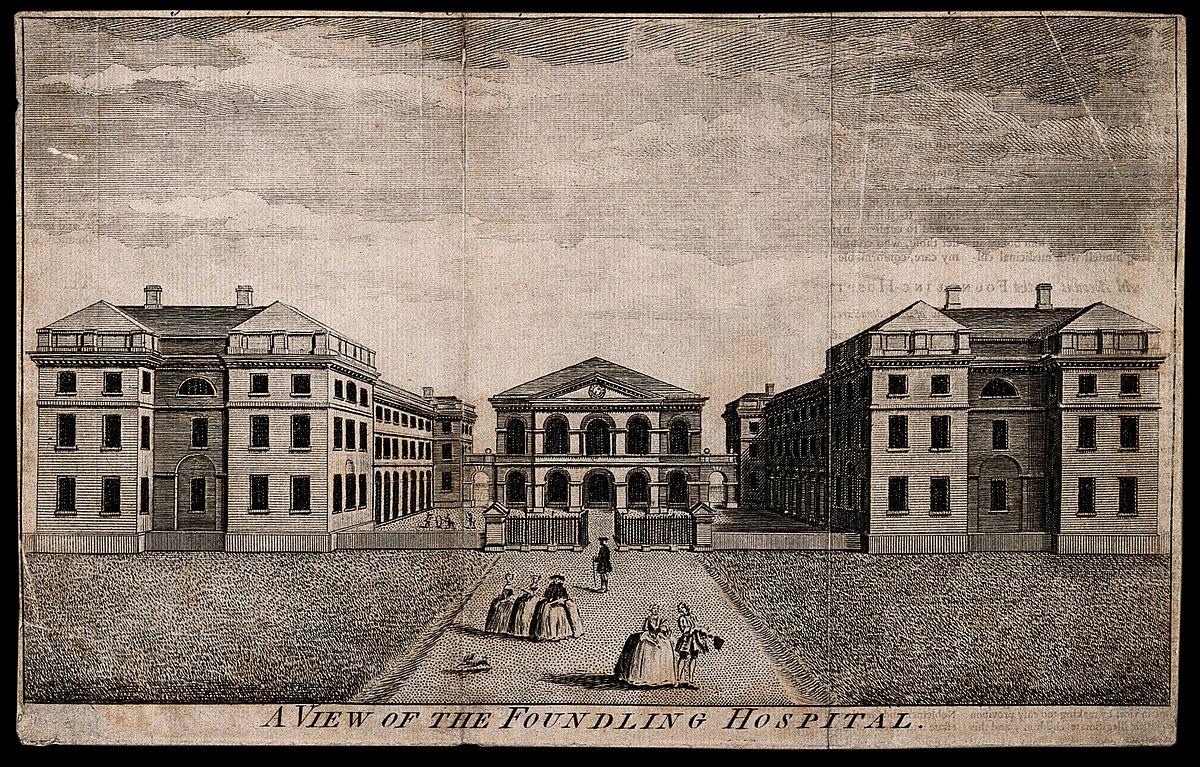Our meeting last night was very well attended – 18 of us squeezed into my living room and not a spare chair in the house! We were privileged to welcome our speaker, Ruth Miller, who took us through the history of the Foundling Hospital, where we heard about its founder, Thomas Coram, and subsequent benefactors including Hogarth and Handel, but it was Ruth’s own story which touched us the most.
As a Foundling in 1937, she was accepted from her mother by the Hospital shortly after birth, given a new name, fostered for 5 years then, as was the procedure, returned to the institution by her foster mother, not understanding why she was abandoned, to spend her childhood to the age of 13 as one of so many girls and boys in the same situation. Whilst living in very segregated dormitories and ‘wards,’ the school itself was well equipped by benefactors for the children’s betterment. They were not deprived of an education, and though it was quite ‘basic,’ she says they were encouraged particularly in music, and sports like swimming – she has medals to show her achievements. What they didn’t have was experience of the outside world or of a family environment, and she often felt isolated as the children were moved on quickly in the scheme of things, and friendships thus difficult to maintain. As the Hospital became a public school around 1954, and the institutionalization of children changed to more family-based arrangements, Ruth managed to achieve O-levels, went on to study and qualify as a nurse, married and had her own family – now with a great-grandchild.
Ruth has been an active member of the Old Coram Association, formed in 1947 to ensure support and connection between pupils, particularly after admissions to the Foundling Hospital ended. However, it held its final meeting last year, having “completed its service to former pupils”, who are now all in their 80s.
Our members, in response to this meeting, have used the words “fascinating”, “humbling”, “interesting”, “moving”, “heartbreaking”, “resilience”, “sad” “emotional” and….“a privilege”.
All of these describe our feelings upon hearing Ruth’s story, but we’re aware that she is just one of the 25,000 children who progressed through the Foundling Hospital from its beginnings. Her own number – on tags she wore around her neck – is somewhere around 24,300…..


